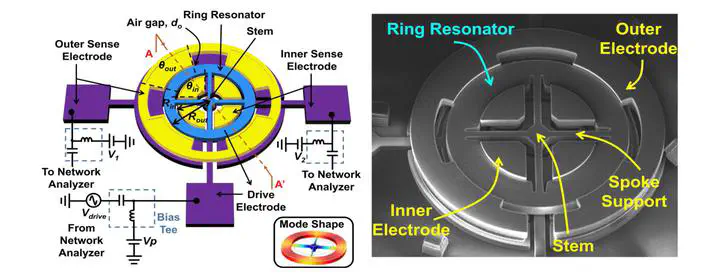
Abstract
Electrical stiffnesses generated within capacitive transducer gaps that differentially straddle the edges of a single micromechanical spoke-supported ring resonator enable a tiny strain sensor that occupies only 0.002mm 2 , so far measures strain changes as small as 491nε, and posts an output strain temperature coefficient of only 0.1με/°C at 40°C, which is 40 times better than achievable by a polysilicon piezoresistive strain gauge and 3 times better than the nearest competing resonant strain sensor. The key to this temperature insensitivity rests in the use of a fully differential ring resonator and a curve-fitting method to extract gap differences that suppresses the false output due to Young’s modulus temperature changes, making it quite compelling for structural health monitoring of surfaces operating in harsh environments, such as in automotive applications.
Add the publication’s full text or supplementary notes here. You can use rich formatting such as including code, math, and images.